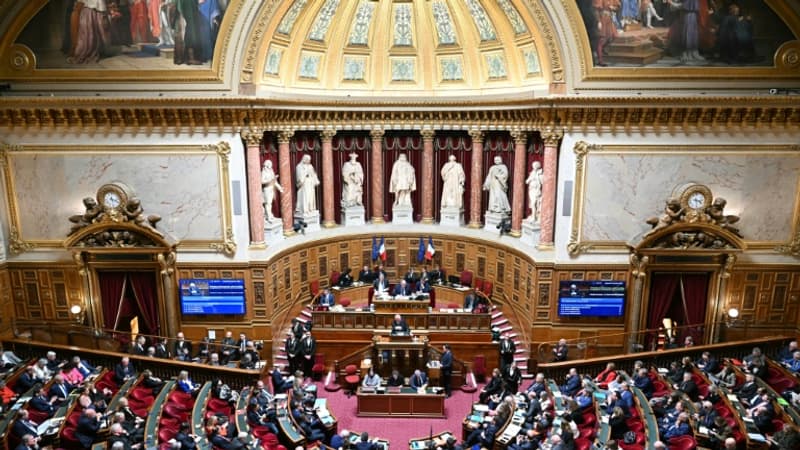Like the National Assembly, the Senate rejected the bill on Monday the approval of the State by 2024, criticizing the “bad budget management” of the previous governments. A vote, however, without legal consequences.
A simple formality at the time of the absolute majority, the vote of this Law of “Budget Regulations”, whose objective is to observe the accounts of the previous year, has faced the opposition to the Parliament.
The year 2024, marked by a significant budget skate, it was not surprising that it was not an exception, with a deficit ascending to 5.8% of the gross domestic product (GDP), against 4.4% provided in the initial financial law.
It is “an immersion in deep water”, regretted that the general reporter of the Senate in the Senate, Jean-François Husson (Les Républicins), while condemning the elections of successive political leaders who “darkened on the wall when denying it obviously.”
The rejection remains without consequence
The Senate rejected the text with 20 votes and 301 votes against, two weeks after a vote similar to the National Assembly. But this rejection remains without a consequence of public finances, because the adoption of said text is not mandatory.
The Minister of Public Accounts, Amélie de Montchalin, lamented this election of parliamentarians, trying to explain the sliding for “unexpected structural developments” and advocate for the “new method of transparency” that the Government intends to highlight for the construction of the next budget.
He also committed to the senators, to bring back in 2025 the growth of the State’s salary bill to “1.5% to the maximum”.
“If there are categorical measures, they will be financed by staff reductions,” he said, while maintaining the objective of the government to carry the public deficit below 3% of GDP by 2029 and promising to “better anticipate the whims.”
The Senate must also reject the approval text for Social Security accounts by 2024, as well as the National Assembly. This informs significantly about a higher social security deficit at 15.3 billion euros.
Source: BFM TV


